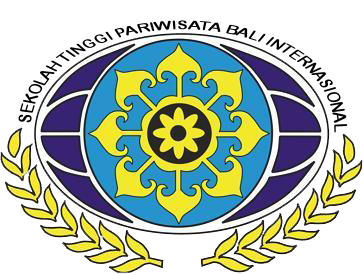KETERIKATAN KARYAWAN DIPENGARUHI OLEH KECERDASAN EMOSIONAL DAN MODAL PSIKOLOGIS (Studi Empiris: PT. Fajar Lestari Sejati, Jakarta)
Abstract
Keywords: Emotional intelligence, psychological capital, employee engagement
Full Text:
PDFReferences
AlMazrouei, 1. A., Dahalan, D. N., & Faiz, D. M. (2015). The Impact Of Emotional Intelligence Dimensions On Employee Engagement. International Journal of Management and Commerce Innovations ISSN 2348-7585 (Online).
Alwisol. (2004). Psikologi Kepribadian. Malang. Penerbitan Universitas Muhammadiyah Malang.
Ayers Schlosser, Lee (2006). Distance Education and Glossary of Terms. Paperback
Bakker, A. &. (2010). Weekly Work Engagament and Performance: A study among starting. Journal of Ocupational and Organizational Psychology, 189-206.
Bandura, A. (2002). A social cognitive theory: Social foundation of thought and action. New Jersey: Prentice Hall, Inc.
Baron, R. &. (2000). Social Psychology: Understanding Human Interaction. Boston: Allyn & Bacon.
Chimezie A. B. Osigweh, Y. (1989). Concept fallibility in organizational science. The Management Review, 14 (4).
Denbagus.(2015).Perubahan itu Harga Mati. Retrieved from http://www.denbagus.com/
Dr.Kanagalakshmi, D. L., & Aggarwal, D. V. (2015). Influence of Spirituality and Emotional Intelligence on Employee Engagement. Journal management Volume : 5 Issue : 9 ISSN - 2249-555X.
Finney, M. I. (2012). The Truth About Getting The Best From People. In V. Pakpahan, Engagement Cara Pintar Membuat Karyawan Mencurahkan Kemampuan Terbaik untuk Organisasi. Volume ke-2. Jakarta: PPM.
Gallup. (2004). Study Engaged Employees Inspire Company Innovation. Gallup Management Journal. http://gmj.gallup.com/content/24880/Gallup-Study-Engaged-EmployeesInspire-Company.aspx [online: akses Desember 2012]
Goleman, D. (2007). Emotional Intelligence, mengapa EI lebih penting dari IQ. Jakarta: Gramedia Pustaka Utama.
Haerani, S. (2007). Employee Engagement Dan Pengaruhnya Terhadap Kinerja Departemen Process Plant Pt. Inco Pasca Akuisisi.
Handoko, H. T. (2008). Manajemen Personalia Dan Sumber Daya Manusia Edisi dua. Yogyakarta: BPFE.
Indrianti, R. (2011). Hubungan Antara Modal Psikologis Dengan Keterikatan Kerja Pada Perawat di Instalasi Rawat Inap Rumah Sakit Jiwa Menur Surabaya. Journal management Universitas Airlangga .
Indrianti, R. (2012). Hubungan Antara Modal Psikologis Dengan Keterikatan Kerja Pada Perawat di Instalasi Rawat Inap Rumah Sakit Jiwa Menur Surabaya. Jurnal Psikologi Industri dan Organisasi Vol.1 No. 03.
Kahn, W. (1990). Psychological conditions of personal engagement and disengagement at work’’, Academy of Management Journal, Vol. 33 No. 4. Psychological Conditions of Personal Engagement.
Kruse, K. (2012). Employee Engagement: How to Motivate Your Team for High Performance (A Real World Guide for Busy Managers). USA: The Kruse Group.
Liwarto, I. H., & Kurniawan, A. (2015). Hubungan Psycap Dengan Kinerja Karyawan Pt.X Bandung. Jurnal Manajemen, Vol.14, No.2.
Luthans, F. (2006). Perilaku Organisasi Edisi Sepuluh. Yogyakarta: penerbit Andi.
Luthans, F., & Youssef, C. M. (2007). Emerging positive Organizational Behavior. Journal of leadership institute Faculty publications, 321-349.
Macey, W. S. (2009). Employee engagement: Tools for analysis, practice, and competitive advantage. london : England: Blackwell.
Marciano L. P. (2010). Carrots and sticks don’t work build a culture of employee
engagement with the principles of RESPECT. New York. Mc Graw Hill.
Masih, D. E., Singh, V. P., & Tirkey, M. R. (2013). Employee Engagement : Engaging Employees At Work. International Journal of Management .
Mayer, J. D., Salovey, P., & Caruso, D. R. (2008, September). Emotional Intelligence. New Ability or Eclectic Traits?
Mayer, J., P.salovey, & Caruso, D. (2000). model of emotional intellegence iin handbook of intellegence . England: Cambrige University Press.
Murthy, D. R. (2014). Psychological Capital, Work Engagement and Organizational Citizenship Behaviour. ISBN: 978-81-927230-0-6.
Nugroho, D. A., Mujiasih, E., & Prihatsanti, U. (2011). Hubungan Antara Psychological Capital Dengan Work Engagement Pada Karyawan PT. Bank Mega Regional Area Semarang.
Perrin, T. (2007). Working Today: Understanding What Drives Employe Engagement. Towers Perrin Talent Report.
Priyatno, D. (2013). Mandiri Belajar Analisis Data Dengan SPSS. Jakarta: Media Kom.
Quang, H. N., Khuong, M. N., & Le, N. H. (2015). The Effects of Leaders’ Emotional Intelligence on Employee Engagement in Vietnamese Construction Companies – A Case of Hoa Binh Corporation. Journal of Economics, Business and Management, Vol. 3, No. 8.
Rachmawati, M. (n.d.). Employee Engagement Sebagai Kunci Meningkatkan Kinerja karyawan. International Journal Review Among Makarti Vol.6 No.12, 2013.
Ravichandran, D. K., Head), D. R., & Kumar, S. A. (2011). The Impact of Emotional Intelligence on Employee Work Engagement Behavior: An Empirical Study. International Journal of Business and Management.
Reed, S. K. (2011). Kognisi: Teori dan Aplikasi. Jakarta: Penerbit Salemba Humanika.
Rusdin. (2013). Keterikatan Karyawan Dan Kontribusinya Dalam Meningkatkan Kinerja Perusahaan. Jurnal Ilmu Manajemen & Bisnis - Vol. 04, No. 01.
Schaufeli, W. B. (2004). The measurement of work engagement with a short. Educational and Psychological Measurement questionnaire: A cross-national study, 701-716.
Schieman, W. A. (2009). Alignment capability engagement. Jakarta: PPM Management.
Sihag, P., & Sarikwal, L. (2014). Impact of Psychological Capital on Employee Engagement: A Study of IT Professionals in Indian Context. Management Studies and Economic Systems (MSES), 1 (2), 127-139, Autumn.
Sugiyono. (2009). Metode Penelitian Bisnis (Pendekatan Kuantitatif, Kualitatif, dan R&D). Bandung: Alfabeta
Suharsimi (2010). Prosedur Penelitian Suatu Pendekatan Praktik, Ed. Revisi, Cet. 14. Jakarta: Rineka Cipta.
Suryabrata, S. (2008). Metodologi Penelitian. Jakarta: Rajawali pers
BIBLIOGRAPHY Trijaya, S. (2014, November 25). SindoTrijaya 104.6 FM. Retrieved from Perusahaan Indonesia Sulit Mempertahankan Tenaga Kerja Kompeten: http://www.sindotrijaya.com/
Watson, T. (2014). Global Workforce Study at glance. p. towerswatson.com.
Zhao, Z. (2009). The Study on Psychological Capital Development Vol. 1, No. 2 . International Journal of Psychological Studies .
DOI: http://dx.doi.org/10.30813/ncci.v0i0.1270
Refbacks
- There are currently no refbacks.










